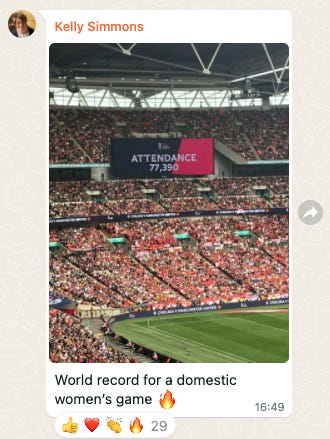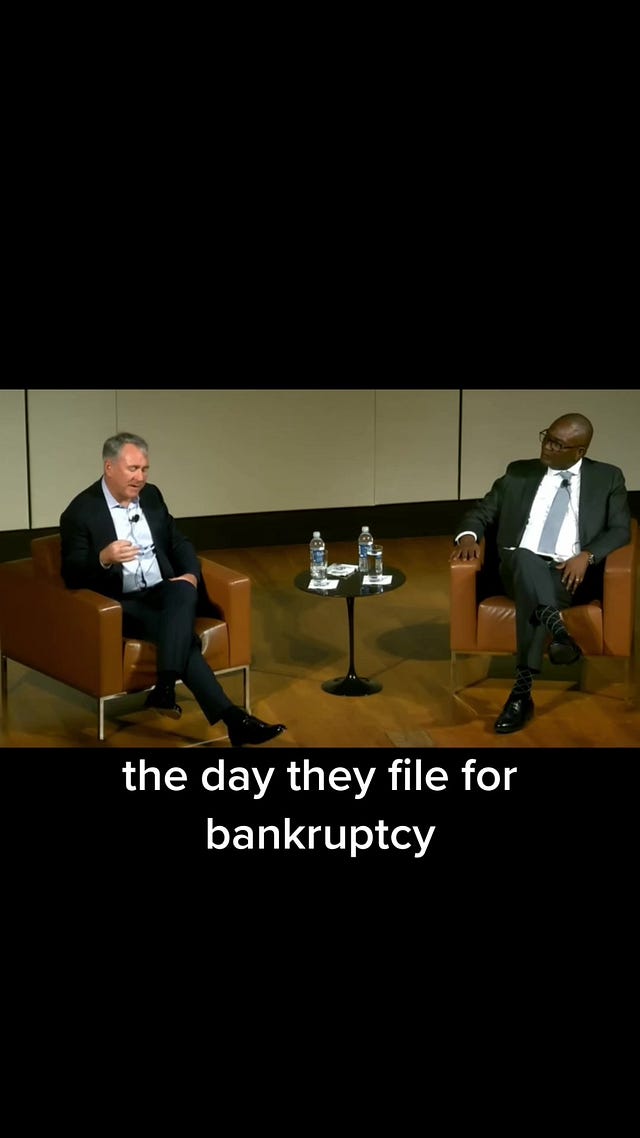Things that shouldn't work but do; Beware physics envy; Why was Wembley full; Burger King's Big Idea; Funnel panic; Buy Side goes to Paris; Did we blow the Lottery; Still a man's game Souey?
Beware received wisdoms
The sports business is more social science than natural science.
The difference?
Science is based on evidence. Proof.
There are immutable laws.
Water boils at 99.97 degrees. The law of gravity means the apple falls. Every time.
By contrast, social science is the study of human behaviour.
The proof bar is far lower.
It has theories.
Sentences are softened.
Maybe, probably.
The word ‘Data’ is often used to attempt to build a bridge between these two worlds.
The past decade has seen the sports business become riddled with physics envy
"Physics envy" refers to the envy (perceived or real) of scholars in other disciplines for the mathematical precision of fundamental concepts obtained by physicists. It is an accusation raised against disciplines (typically against social sciences and liberal arts such as literature, philosophy, economics, and psychology) when these academic areas try to express their fundamental concepts in terms of mathematics, which is seen as an unwarranted push for reductionism.
Spoiler: a sports marketer quoting data carries less evidential weight than when Einstein said it.
So what?
The sports business is based not on immutable laws but on received wisdoms.
Some recent examples:
Received wisdom 1: Women’s sport needs newspaper coverage
Maybe.
On the UP WhatsApp Group (the greatest backchannel in the sports business), Nick Rusling posted this on the way to Wembley last weekend:
If this was science, Wembley would’ve been deserted.
But it wasn’t. Far from it.
I’m making no bigger point than, I think this says more about the perceived power of newspapers than it does about the popularity of women’s football.
Caveat: Wembley didn’t fill itself. It’s the result of hard slog undertaken by many, many people over many years.
Even I’m not that complacent.
But there’s room in the debate for the idea that those people at Wembley are not in thrall to the editorial decisions of national newspaper sports editors.
This releases the people who run the sport from viewing sports editors as essential gatekeepers to the commercial growth of the game.
There’s a chance that cause and effect are the other way around.
A full Wembley will lead to greater coverage.
National newspapers are commercial organisations.
A sports editor is filling pages with what he (ahem) thinks will be popular with his (ahem) audience.
He’s not creating demand, he’s following it.
We keep saying that women’s football is different.
Maybe the media model is different too.
Received wisdom 2: The inspiration story
Much of the sports economy is based on a wonky story.
It goes like this:
We watch the Olympics*, become inspired and then go and play.
(* Insert televised sport of your choice)
This story is worth tens of billions.
Governments and marketers use it for their own ends.
This money sets the incentives in the sports marketplace.
It gets you to the Sport as Entertainment position: Every sport must have a compelling top of funnel media product that raises awareness, brings in viewers and ultimately leads to action, defined in this sense as joining a local club to run, jump, hit a ball etc.
The inverse should also be true: a boring or ineffective entertainment product should lead to declines in participation.
But wherever I look the inspiration story seems less and less relevant.
Or perhaps the funnel model is over rated, out of date and/or the numbers are wrong.
I’ve been talking about this a lot recently, in the context of UK Athletics.
Because something odd is happening, that challenges the link between what we watch and what we do.
UK Athletics is going bust during a running boom.
This shouldn’t be happening.
Athletics on telly is for the most part dull, or worse, invisible.
It’s a rare day someone rushes from the pub to catch the Diamond League.
But the people are revolting: They appear to be running in substantial numbers, perhaps despite UK Athletics not because of it.
What has inspired all this activity if not the top of funnel entertainment product?
(Spoiler: Park Run).
Likewise, golf participation is booming while its TV version rivals paint drying for thrills.
Sales of weight lifting equipment have soared (Blame CrossFit).
Other examples are readily available.
This leads to another question, which is quite uncomfortable:
Did we blow the Lottery cash?
The inspiration story writ large.
High performance institutes. Inspire a nation.
Buying medals.
Did it work?
Baroness Sue Campbell didn’t like this question btw.
See previous: The Limits of Sport and Tanni Grey Thompson’s ‘false hopes’ speech
See previous: That Girl Didn’t
The Unofficial Partner Big Idea Hall Of Fame #UPBIHOF
This week’s entry: Burger King’s Stevenage Challenge
As discussed on this week’s Big Idea podcast.
Watch this clip and then listen to me and Simon Moore dissect it in to tiny bits.
Do you remember we used to talk about the Golden Decade of British Sport?
This came up during our conversation about the Paris swing of major events, starting this year with the Rugby World Cup and through the Paris 2024 Olympic and Paralympic Games.
What should Paris learn from London?
Who were the big winners and losers?
Hear Stuart Wareman of Accor, Europe’s biggest hotel group and partner of the above two major events.
See previous: Whatever Happened to the Golden Decade of Sport?
In a famous speech in 2008, then Prime Minister Gordon Brown proclaimed London 2012 as the start of a ‘Golden decade of sport’ in Britain, which will leave a lasting legacy from ‘elite to grass roots’.
One of our early podcasts asked, was he right, and what was the commercial legacy of the last ten years?
Which governing bodies, sponsors and agencies have prospered and which have seen their star wane? Who were the people whose careers were made during the last decade and those who suffered from being in the spotlight?
What is your business, really?
I sometimes wonder who are the most valuable people in any organisation. Who’s the first person you’d save when it all goes pear shaped?
An extension of this is: are you in the business you think you’re in?
There’s quite an insight in to how hedge funds work in this story of what Ken Griffin did when he heard Enron was going down.
Nice threads
PTI Digital CEO Ben Wells on sport’s relationship to the cost of living crisis
Sponsorworks are UP’s ticketing and event partner. They talk all the pain away. Don’t take our word for it, ask the people at Xero; they’ve just hired them to run their FIFA Women’s World Cup ticketing and hospitality process.
Souness on the Glazers (he’s wrong btw), how punditry works, Woke footballers and his exit from Sky Sports, it’s a man’s game and all that. Fascinating on the then and now.
Personal Best
Sportsbiz people share their favourite things
This week: Sam Graham, Leaders, Fulham FC, Sport Interactive
Join the thousands of people who subscribe to Unofficial Partner.
We publish two podcasts each week, on Tuesday and Friday.
These are deep conversations with smart people from inside and outside sport.
This newsletter is our way of picking up the threads, and is published every Thursday.
Our entire back catalogue of 300 sports business conversations are available free of charge here.
Each pod is available by searching for ‘Unofficial Partner’ on Apple, Spotify, Google, Stitcher and every podcast app.
If you’re interested in collaborating with Unofficial Partner to create one-off podcasts or series, you can reach us by replying to this email.












"What has inspired all this activity if not the top of funnel entertainment product?
(Spoiler: Park Run).
Likewise, golf participation is booming while its TV version rivals paint drying for thrills.
Sales of weight lifting equipment have soared (Blame CrossFit). "
I would add Covid and Strava as drivers. Covid also spurred work-from-home and improvements to bike lanes, paths and parks that may also be helping running. Strava and its users are also starting to figure out golf, weightlifting and other sports.